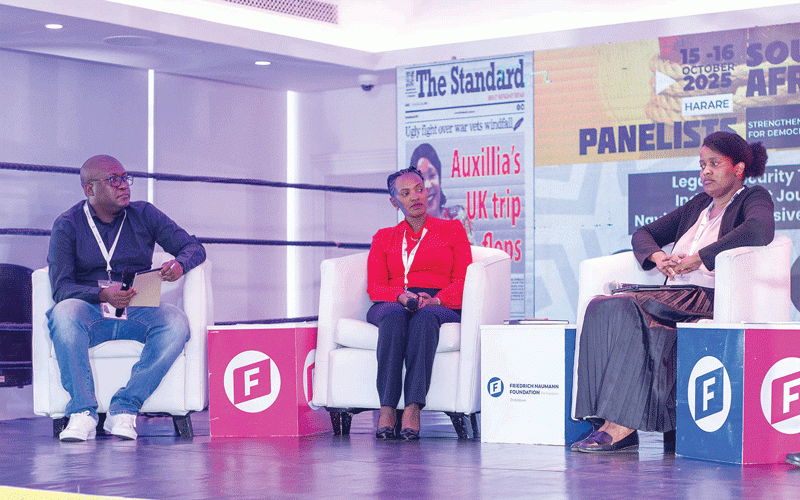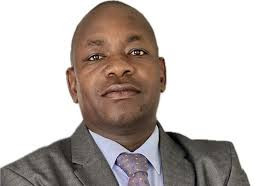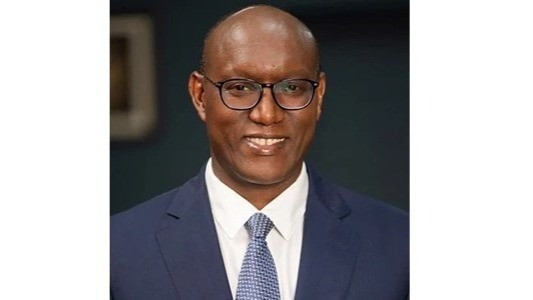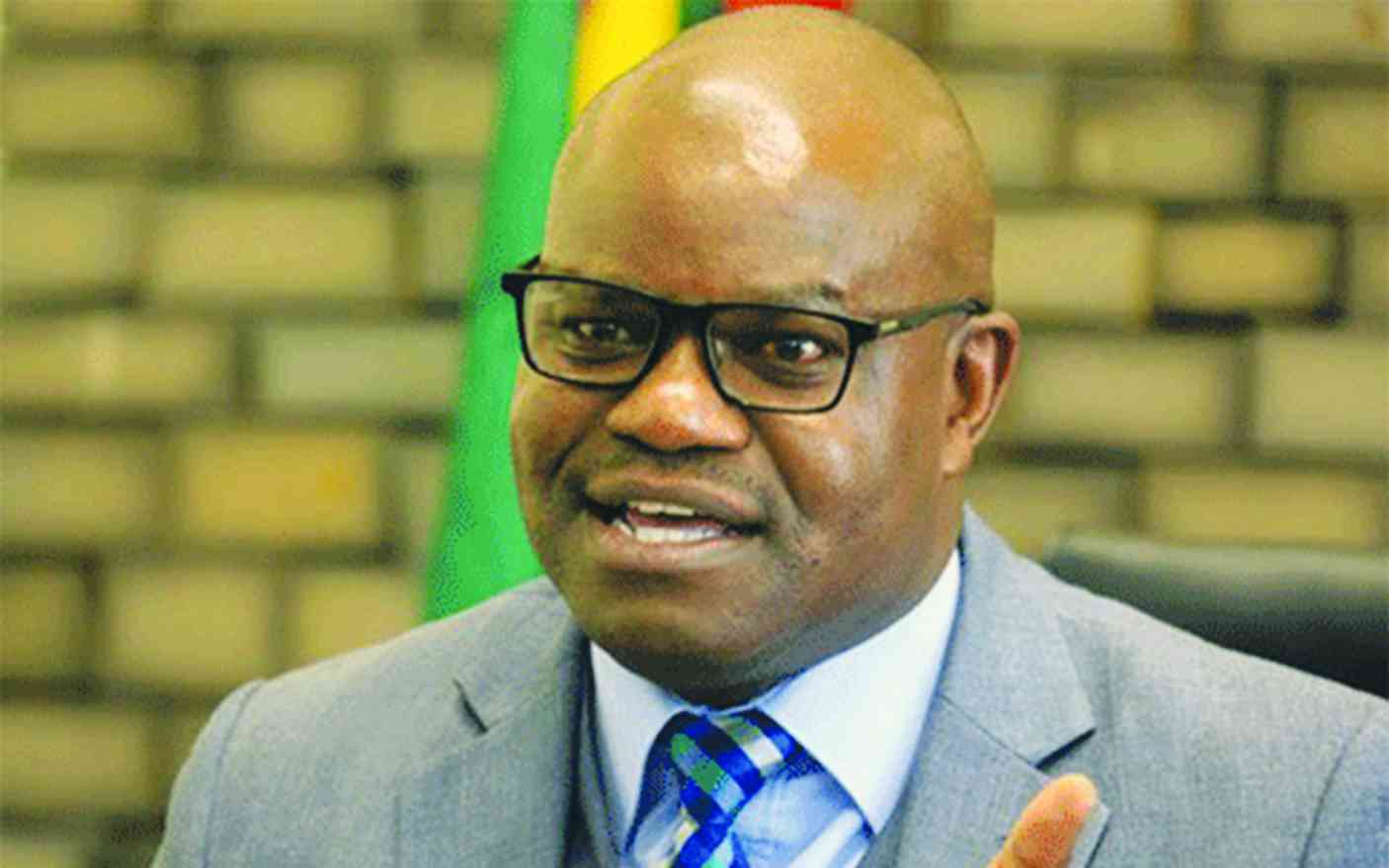
THE Southern Africa Media Summit (SAMS) held in Harare this week became a powerful platform for journalists, lawyers and civil society leaders to demand constitutional alignment, accountability and protection for journalists amid rising threats to press freedom across the region.
The two-day hybrid event, organised by Alpha Media Holdings’ Heart and Soul Broadcasting Services (HSTV) in partnership with the Friedrich Naumann Foundation, Zimbabwe Lawyers for Human Rights, the Centre for Human Rights at the University of Pretoria, ZimRights, Orbit International Youth Organisation and the Global Social Movement Centre, brought together regional voices united by one theme — that democracy without free expression is an empty promise.
Prominent lawyer and press freedom advocate Chris Mhike said the 2013 Constitution had provided unprecedented opportunities for media freedom, but the gap between promise and practice remained wide.
“We have many more tools today to use in expressing ourselves,” he said.
“Our Constitution now includes an express provision for press freedom which we did not have in the 1979–1980 Constitution. Because of the more expansive nature of the Bill of Rights in the new Constitution, we have a better opportunity to bring to fruition the freedom that our laws promise.”
Mhike said the challenge now was for citizens and journalists to claim the rights guaranteed on paper.
“We, therefore, have a duty as the media to educate the general public about their rights because they are promised in the Constitution and therefore to encourage them to exercise them,” he said.
“Every journalist has a duty to demand that what is promised in the Constitution is respected.”
- Act on Pandora Papers expose
- Pandora Papers: Top Mnangagwa official exposed in biggest leak
- Act on Pandora Papers expose
- Pandora Papers: Top Mnangagwa official exposed in biggest leak
Keep Reading
He warned that too many laws passed in Parliament were inconsistent with the Constitution.
“Too many of these statutes are not consistent with the promises that are in the Constitution,” he said.
“Only last week, Alpha Media Holdings was in the Constitutional Court challenging the constitutionality of provisions of the Criminal Law Code that criminalise the transmission of certain messages. That is the sort of leadership that we want and that is the sort of culture of challenging that will help us accomplish a more perfect democracy that we all deserve.”
Mhike, who has represented several journalists and activists in court, said the lack of democratic culture remained one of Zimbabwe’s biggest challenges.
“We are in a very good space in terms of the letter of the law. We have many protections on paper. But instead of now living the spirit of the law, we have major problems. There is no democratic culture,” he said.
He recalled the case of opposition activist Fadzayi Mahere, arrested in 2021 for allegedly peddling falsehoods under a law that had already been struck down.
“We brought it to the attention of prosecutors that this is no longer part of our law,” he said.
“They said well that’s your defence, say that in court. She was convicted and freed only in the High Court on appeal.”
Mhike said the case exposed deep institutional defiance. “I do not believe that none of the people in the National Prosecuting Authority and none of the judicial officers in the Judicial Service Commission was aware of the illegality of this prosecution,” he said. “We have a cultural problem, that’s the short answer to that question.”
Media Institute of Southern Africa legal officer Hellen Sithole said Zimbabwe’s obligations under the African Charter on Human and People’s Rights made the protection of expression and access to information non-negotiable.
“Because we are a party to that, we have to have those elements in our legislation,” she said. “We are making some positive progress towards that end, but when we look at our laws, they need further alignment. We still have colonial laws that speak to sedition.”
Sithole said the principle of media self-regulation, recognised under the African Commission, was essential to strengthen accountability and professionalism.
“Under that principle there is need for the media to self-regulate in order to promote accountability and transparency,” she said.
“The model should have the industry itself coming up with standards, complaint mechanisms and limited state powers.”
Sithole said the repeal of Access to Information and Protection of Privacy Act and the enactment of the Freedom of Information Act and the Zimbabwe Media Commission Act were positive steps, “but still more work needs to be done”.
She added: “The African Court has actually called on states to remove their criminal defamation laws. I think as different stakeholders we need to advocate for the amendment or removing of those clauses altogether.”
Friedrich Naumann Foundation senior project manager and former investigative journalist Judie Kaberia said solidarity between civil society and the media was critical to withstand state pressure and protect journalists.
“We believe in the power of networking because a lot of times you’re fighting for the same cause and coming together helps us to understand each other,” she said.
Recalling Kenya’s turbulent protests, she said: “During the protests in Kenya, journalists were targeted. One female journalist was shot three times. This synergy between civil society and the media really needs to be connected.”
Kaberia said journalists in many parts of Africa were under increasing surveillance and intimidation.
“There’s extreme surveillance of journalists. I hope I go back home safely,” she said.
“This shows us the need to continue supporting journalists, and I hope with all this financial crisis we’re facing that we’re not going to forget the need to continue supporting them.”
Kaberia spoke of her own moments of fear and resolve.
“I self-censored myself two times because I was reporting on accountability after post-election violence in Kenya,” she said.
“Sometimes I would ask myself then, when do I need to change my job? But then again, if I don’t tell this story, who’s going to tell my story?”
Kaberia said despite financial pressures and political interference, journalists must continue to uphold integrity and professionalism. “Even though there is self-censorship, we still celebrate the resilience of journalists. A lot of them are struggling, but still very bold stories are coming out,” she said.
“We have to think about how to support journalism that is important for society.”
Her closing words summed up the shared sentiment of the summit. “If we don’t have freedom of the media, people in the region cannot speak for themselves. Even governments need the media because they rely on it to reach their electorates,” Kaberia said.
“Until we start seeing the media as an integral part of our lives, we will continue to struggle. When we reimagine journalism, we reimagine democracy itself.”
Daily Maverick’s Mamaponya Motsai said credible journalism must be grounded in accuracy, fairness, ethics and transparency, adding that explaining how stories are verified or how AI is used in newsrooms can help rebuild audience trust.
Daily Maverick head of operations Kathryn Kotze said the financial fragility of independent media remained one of the biggest threats to press freedom in Africa.
She said sustainability was not only about chasing revenue but about aligning mission and money, with resilience depending on diversification of income through grants, commercial partnerships and reader-supported models.











